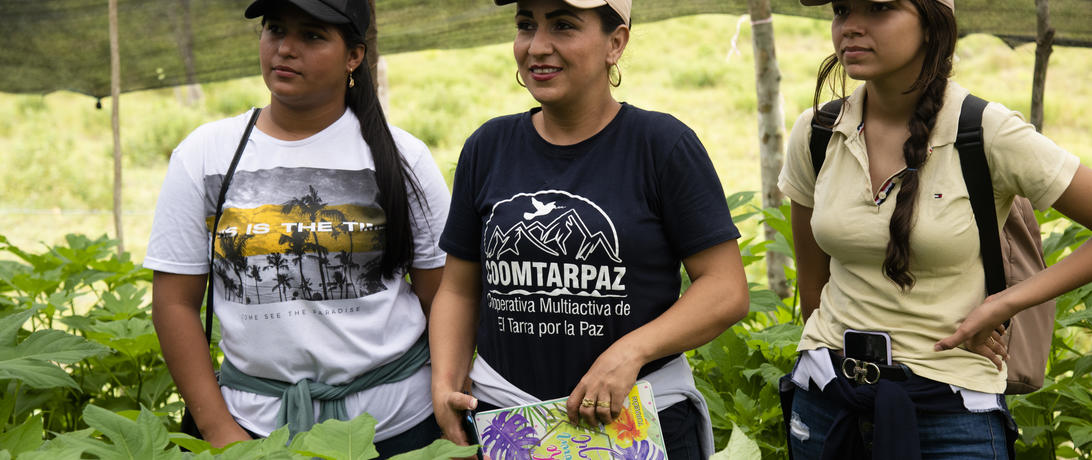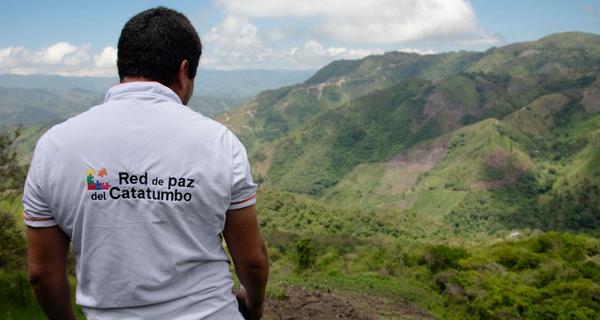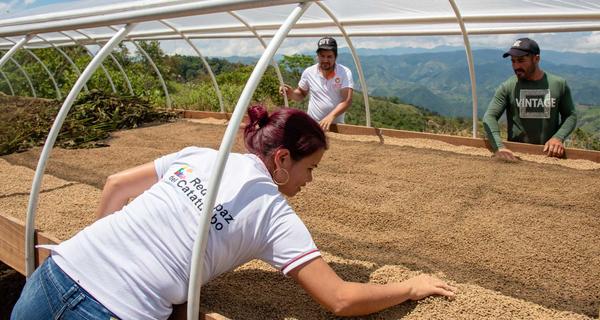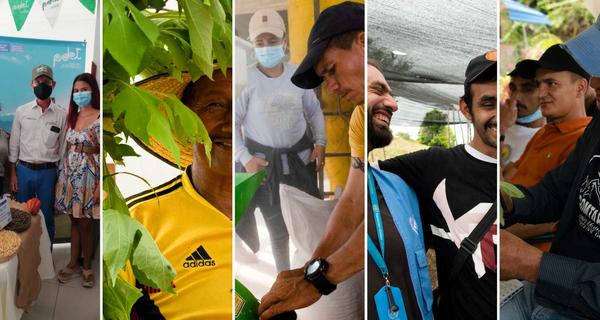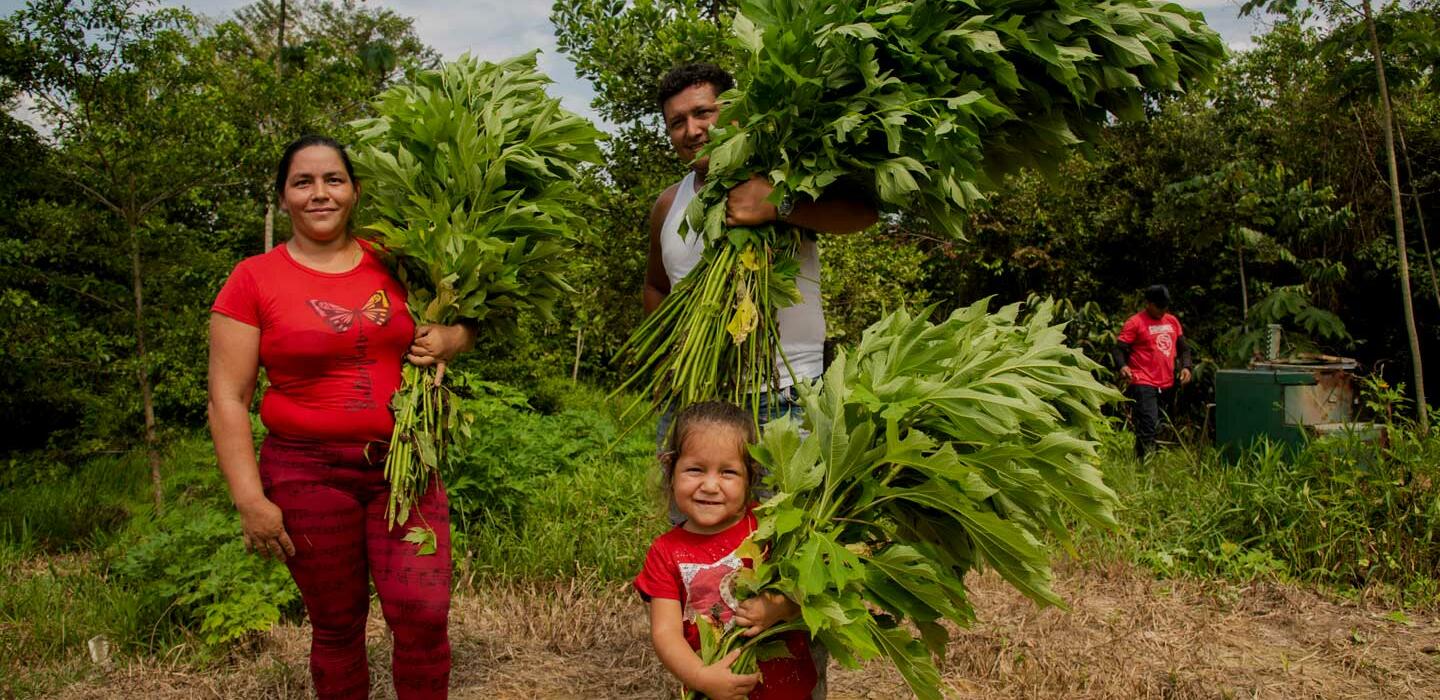
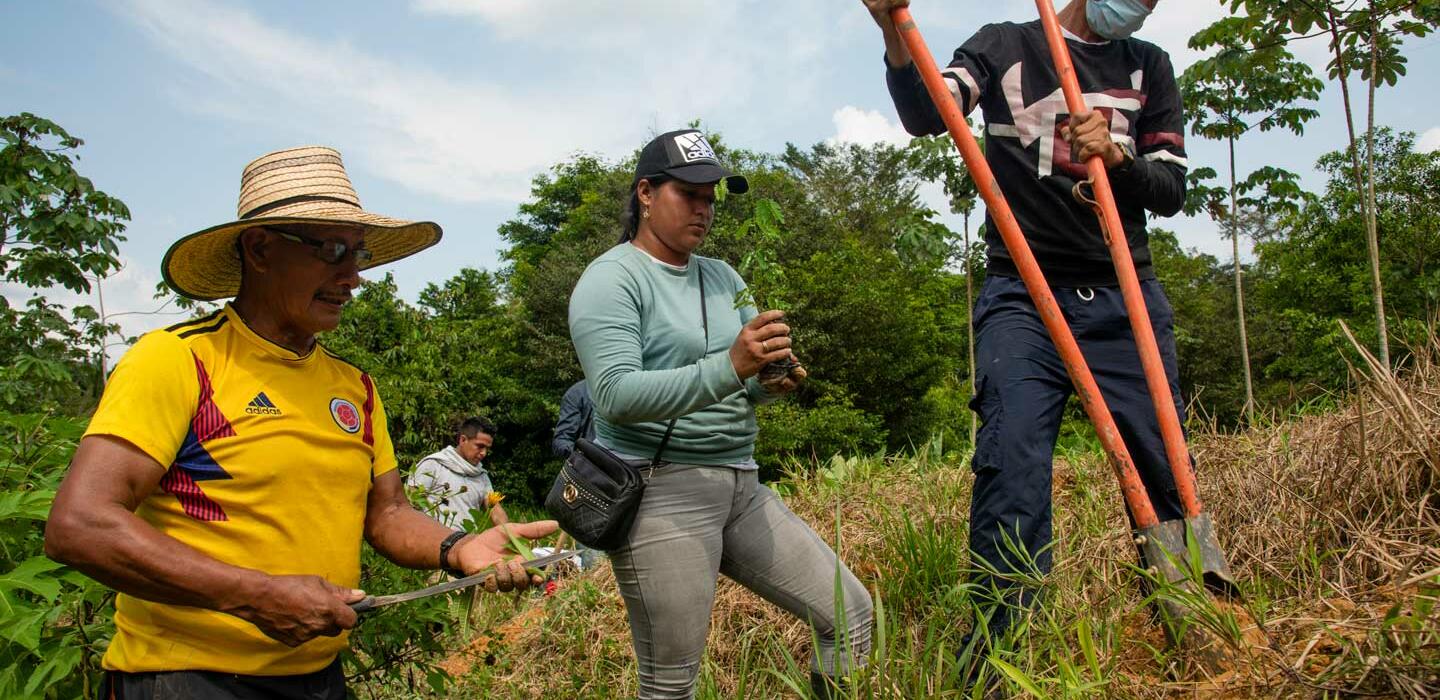
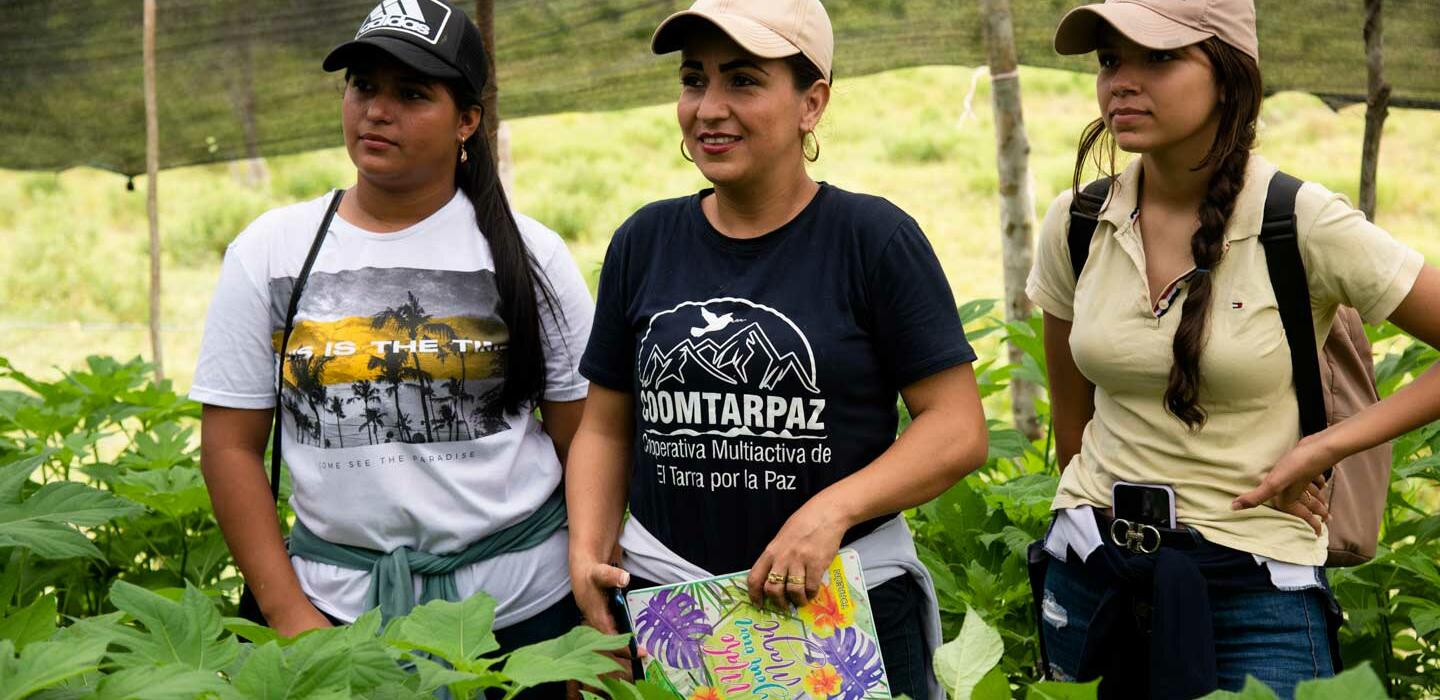
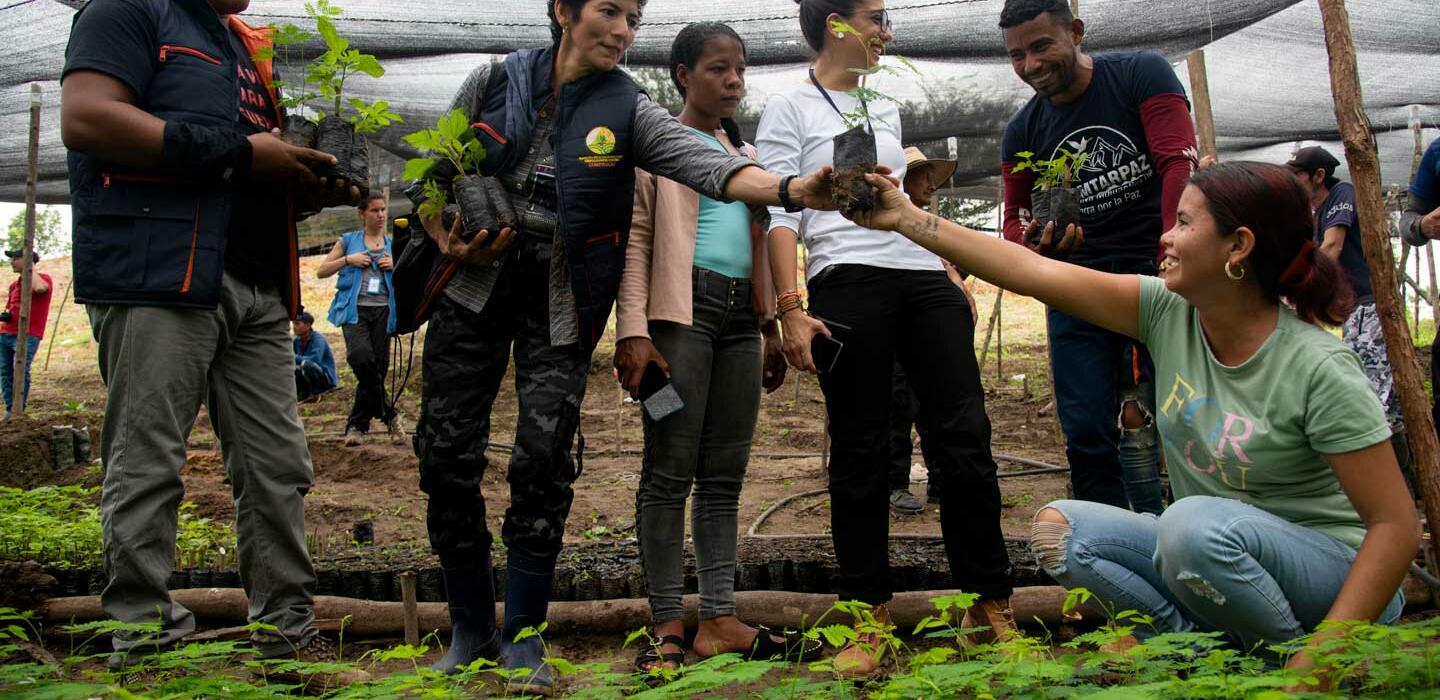
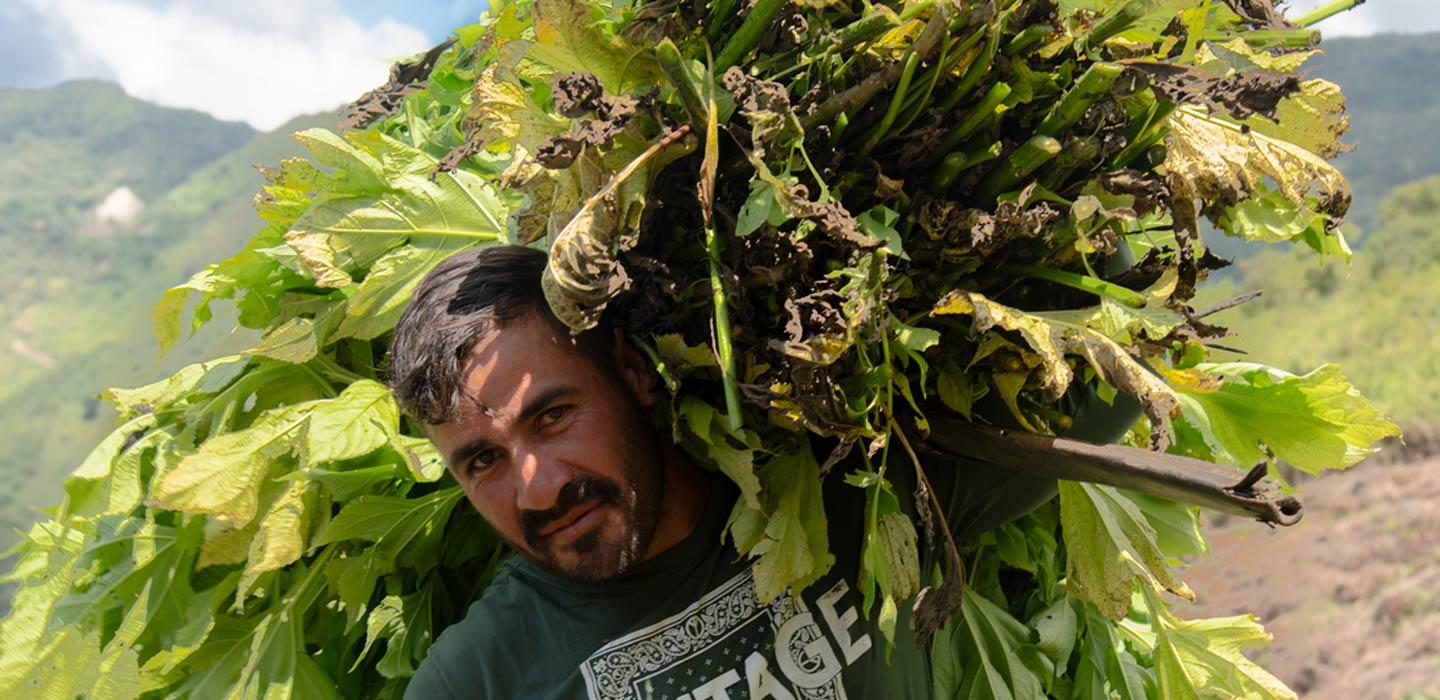
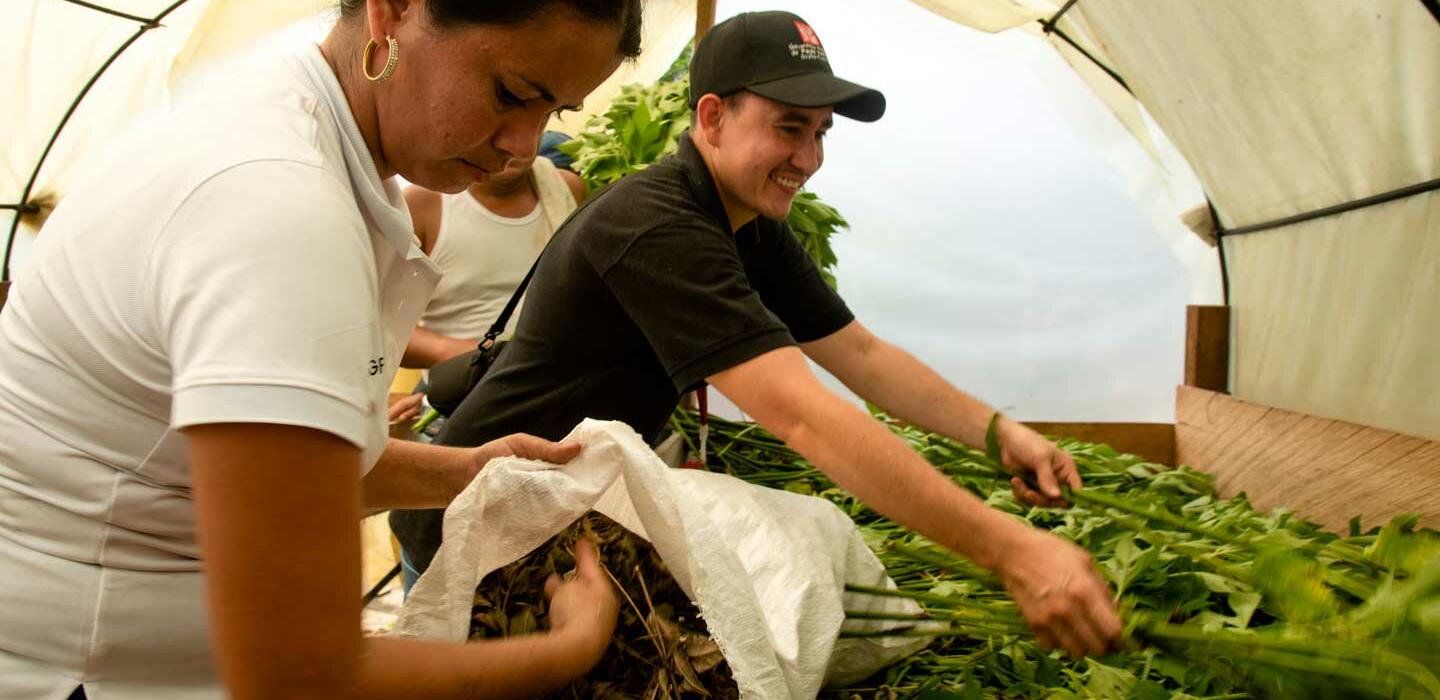
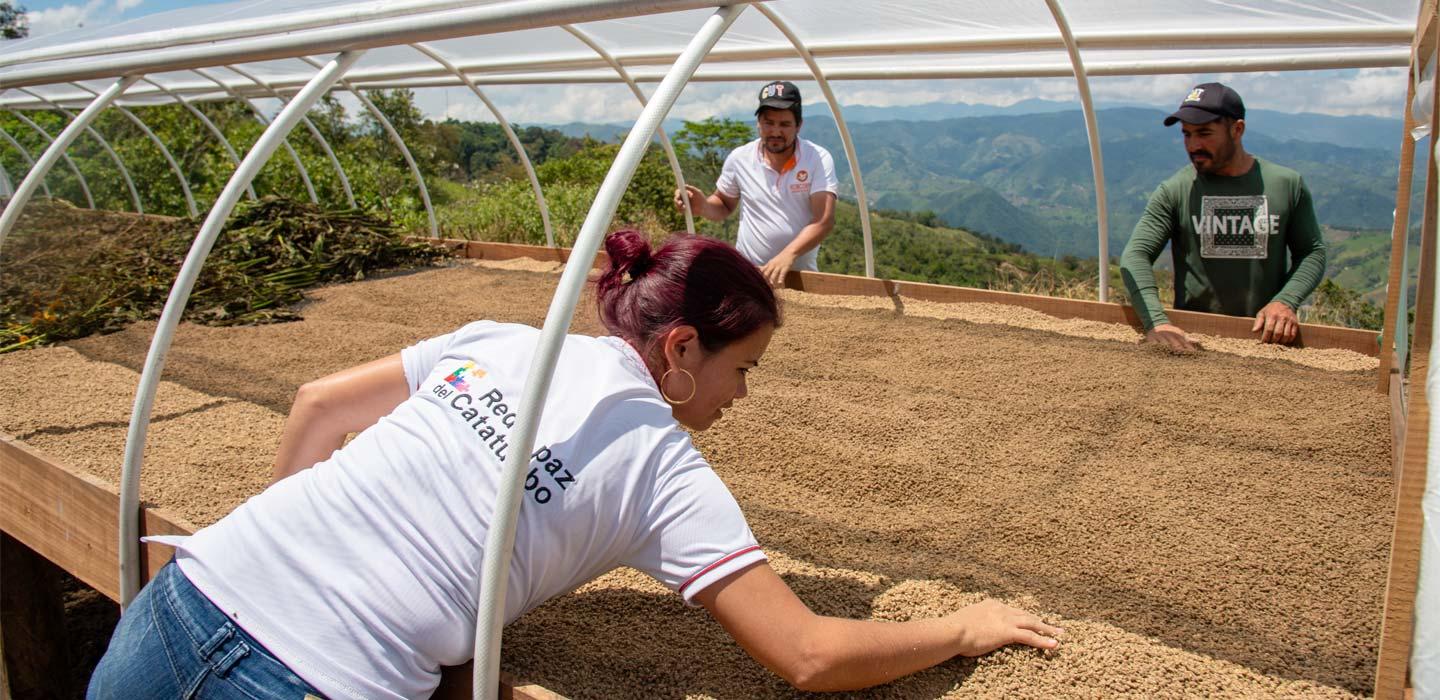
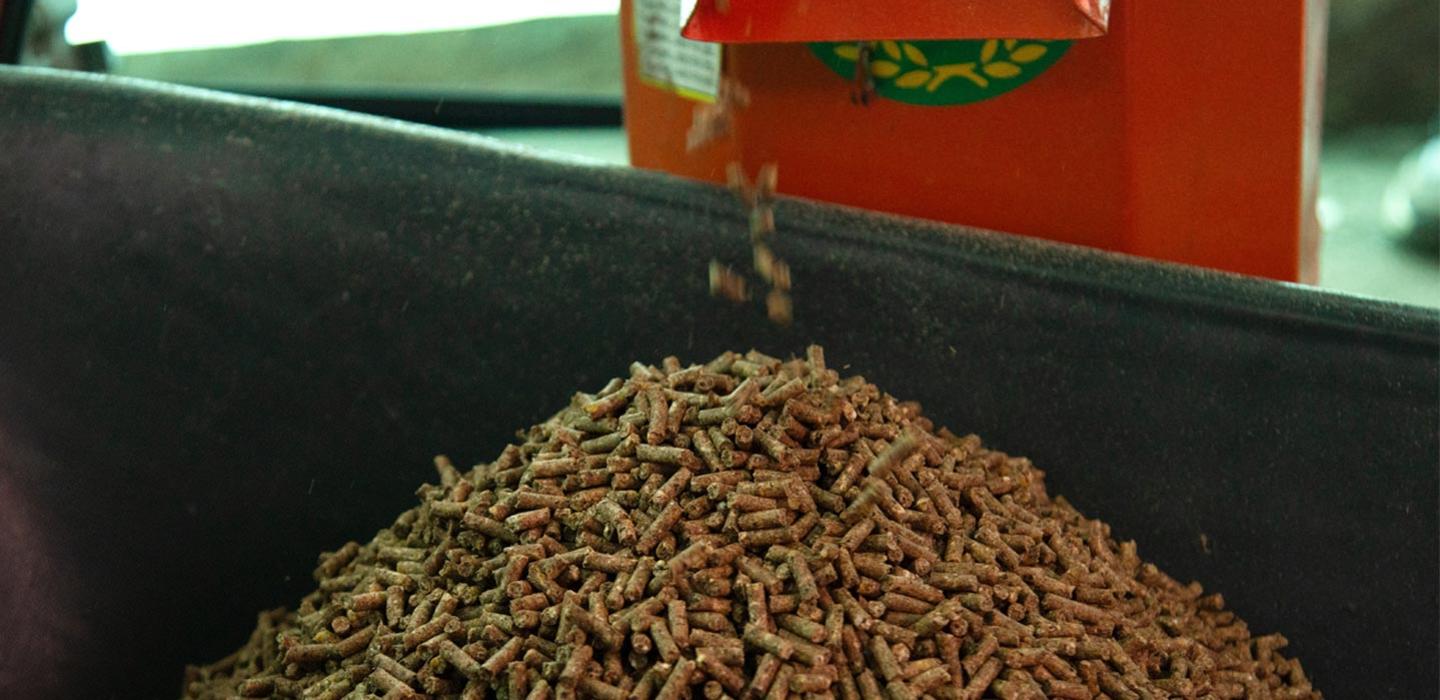
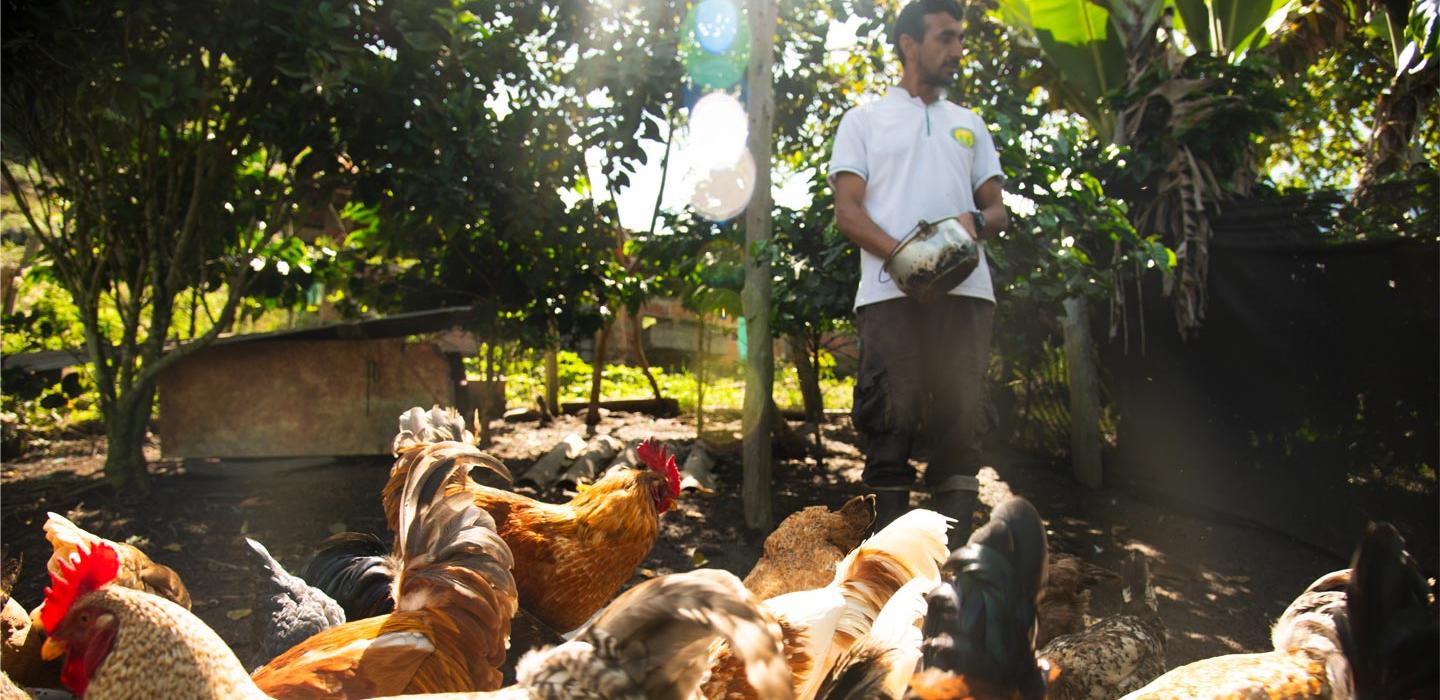
The Catatumbo Peace Network is a peace-building model promoted by PASO Colombia together with peace signatories, farmers, and other strategic actors, which seeks to transform the territory by articulating environmentally sustainable productive initiatives, rebuilding the social fabric of the participants at the local and regional level. The Network is made up of seven associative forms of peace signatories with the participation of farmers and an association composed mainly of women, who left coca crops behind. The Network currently has important partners such as the Universidad Francisco de Paula Santander - Seccional Ocaña, the UN Verification Mission in Colombia, the Universidad Nacional Abierta y a Distancia (UNAD), the Agency for Reincorporation and Normalization (ARN), the Solidarity Unit, the National Learning Service (SENA), the World Food Program (WFP), MERCY CORPS, the Office of the High Commissioner for Peace (OACP) and the Directorate for the Substitution of Illegal Economies (DSCI).
The complexity of territories such as Catatumbo, full of spectacular landscapes and battered by decades of conflict, has led us to explore with the communities new collaborative models to contribute to territorial development in a sustainable way over time and resilient to the different adversities encountered along the way. In order to energize connections that go from the local to the regional level, the Peace Network has been divided into nodes according to geography and the projects prioritized by the participating organizations.
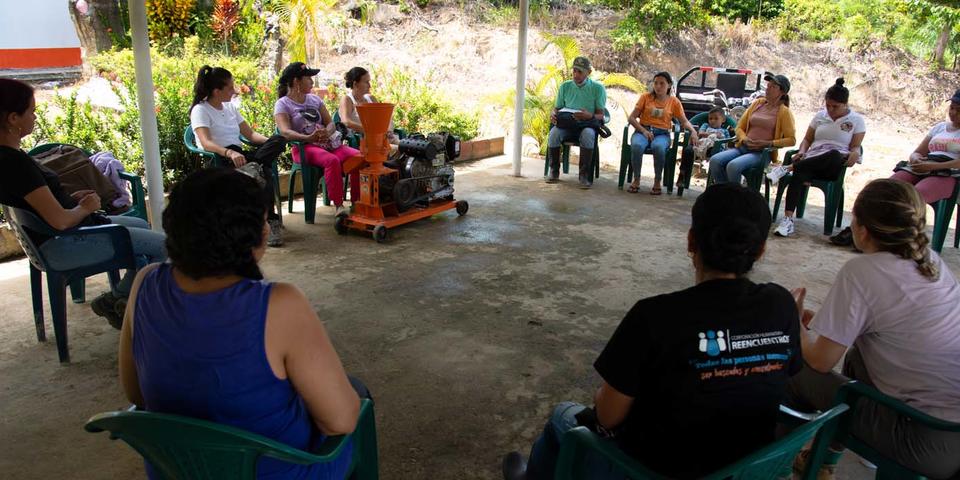
The Catatumbo Peace Network is guided by four strategic axes:
- Sustainable production and agroforestry systems: with which it promotes the cultivation and production of corn, cassava, banana, rice, soybeans and forage for the production of concentrates. In addition, it has promoted the construction of home gardens, seed banks and improvement of pastures in the farms of the associates, to guarantee adequate food for the animals and income and savings for the families.
- Collective productive infrastructure: In these collective spaces the families of the territory meet to train, produce, market and exchange seeds, seedlings, formulas and food. For this purpose, the following have been built: collection centers, drying centers and biofactories with machinery for the production of concentrates (pelletizer, grinding mill, mixer).
- Creation of markets: Within the framework of this axis, local markets have been created through the construction of marketing plans, farmers' markets and barter of plant material. Thanks to this, the associative forms market the products of their agricultural projects, organic fertilizers and balanced food in different spaces such as farmers' markets and business fairs.
Biofactories, key meeting and exchange points
One of the articulating projects of the Peace Network has been the biofactories for the production of organic concentrates and fertilizers. To support their growth, PASO Colombia has delivered machinery such as pelletizers, crushing mills, mixers and the installation of electric power, and together with the UFPS has provided technical support to the participants. These biofactories have a positive environmental component, since they take advantage of raw materials grown in the territory and their production is sold locally. These products help to address one of the most common difficulties encountered by livestock projects in the territory, which is the high cost of industrial concentrates and dependence on imports. In this way, local production and commercialization allows the Catatumbo communities to have access to more economical and cleaner alternatives for raising their animals.
For the production of these concentrates, the participants of the different associative forms have started to cultivate raw materials such as buttercups or matarratón, fodder crops with high nutritional content for animals. Along the way, they have learned to take advantage of these species, which they used to see as weeds, and have implemented productive reforestation that allows the recovery of soils affected by decades of monocultures.
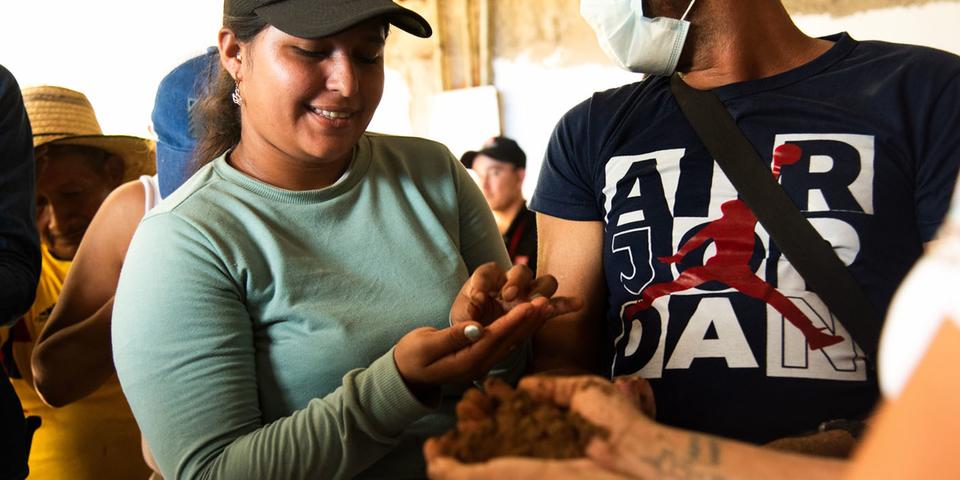
Taking advantage of the solidarity approach promoted by the Peace Network, the AGROINCAT association (made up of farmer families participating in the Contingency Plan in support of coca eradication families, implemented by PASO Colombia) has led trainings in which they share their experience and knowledge about biofactories with the other peace signatory associations that are part of the Network. The objective is that a solidarity approach prevails among the different projects, taking the lessons learned from each one and integrating new allies that benefit the entire region. As a complement, we have been working hand in hand with the Universidad Francisco de Paula Santander - Seccional Ocaña, to certify the training received by the communities; and the Solidarity Unit has supported the organizational strengthening of the associative forms and local organizations.
KEY CONCEPTS DEVELOPED BY THE CATATUMBO PEACE NETWORK
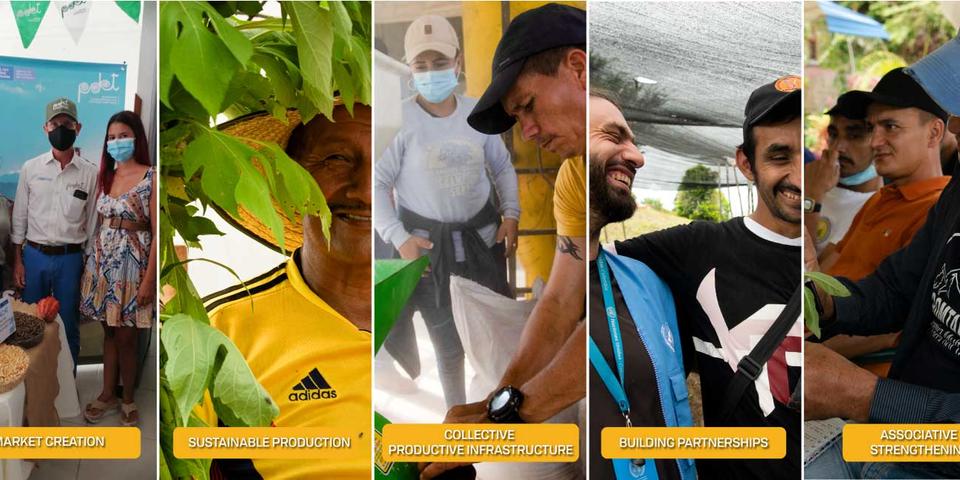
Nodes of peace in the Catatumbo region
Currently, the Catatumbo Peace Network has 3 nodes that integrate cooperatives of ex-combatants, farmer families and former coca growers.
Node 1: Cúcuta, focused on a communication and articulation project with the Catatumbo cooperatives to commercialize their different products.
Node 2: Integrated by 3 associations located in the municipality of Tibú.
Node 3: Comprised of 3 associations located in the municipalities of San Calixto, Teorama and El Tarra.
Within the framework of this project, 3 biofactories have been developed, equipped and accompanied:
- 3 biofactories
- 6 seed banks
- 1 agroforestry system
- 3 nurseries
- 2 collection centers
- 1 warehouse
- 3 drying centers
- 25 farmers' markets
- 2 commercial alliances
- 9 home gardens
